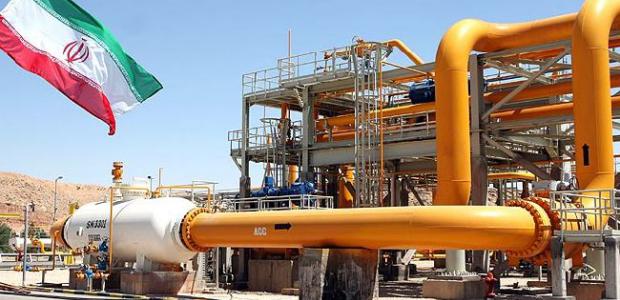Preliminary talks between ELPE (Hellenic Petroleum) and Iran’s state-run oil company NIOC, which shares an extensive trading past with the Greek corporation, are expected to begin within the next few weeks.
Just days after an agreement was recently reached between the West and Tehran on Iran’s nuclear program, NIOC, according to sources, forwarded a letter to ELPE requesting that the two sides begin negotiating a new oil supply deal, upon the conclusion of Ramadan, the Islamic month of religious observance, on July 16.
ELPE, the sources informed, is ready to begin talks with the Iranian company with the aim of securing a deal for steady supply of Iranian crude, incorporated with an agreement offering favorable terms for the settlement, in installments, of slightly over 500 million dollars owed by ELPE to NIOC. ELPE has owed the amount since sanctions were imposed on Iran by the West in 2012.
However, the return of Iranian crude to the international market may prove to be a tricky procedure as a result of political obstacles. Both Israel and members of the US Congress have already reacted strongly against the prospect.
Israeli Prime Minister Benjamin Netanyahu described the West’s agreement with Iran as a “threat to the world”, while also adding that “Iran will have acquired as many nuclear weapons as it pleases over the next ten years.”
In the US, John Boehner, Speaker of the United States House of Representatives, and a member of the Republican Party, said the house will do its utmost for the deal to be rejected by Congress.
In other words, with bilateral ties between Israel and Iran anything but resolved, plenty of work lies ahead before Iran may return to the international oil market and, by extension, any deal between NIOC and ELPE can be applied.
Further negotiations between Iran and the West could last many months. Not surprisingly, reports that emerged just days ago claiming Iranian oil supply to the West will be launched – at a modest level – in October have not been confirmed.
As the reaction against Iran’s return to the international market widens, the process could be delayed until next year.
Prior to the West’s sanctions on Iran, ELPE and fellow Greek company Motor Oil were ordering an average of 100,000 barrels of oil per day, which represented one-third of total Greek crude imports.
In recent months, while the prospect of a deal between Iran and the West appeared to be gaining ground, Greece’s just-replaced Production Reconstruction, Environment and Energy Minister Panagiotis Lafazanis had met with Iran’s Deputy Oil Minister for International and Commercial Affairs Amir-Hossein Zamaninia in Athens to discuss a bilateral deal involving Greek supply to Iran of emergency needs such as pharmaceuticals, farming products, and food in exchange for crude.
Officials at ELPE are closely monitoring the latest developments on Iran. The issue may be included on the agenda of a meeting scheduled for tomorrow between ELPE’s CEO Grigoris Stergioulis and Greece’s newly appointed energy minister Panos Skourletis.





